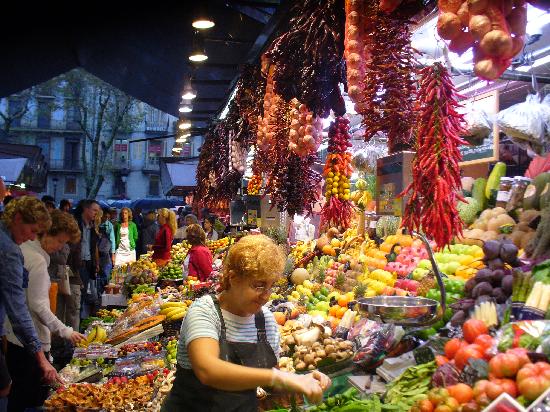There are numerous tools and techniques employed while exploring a new city…maps, tour guides, travel booklets-all of them are helpful. However, I am happiest and learn the most when I allow my eyes, ears and nose to guide me through a new city. When traveling through Latin and South America, I can always count on the buzz created by street markets. There are innumerable delights to be found – fresh handmade blue or red corn tortillas, barbecued goat, handmade tropical-fruit ice cream, smoked pork…the list goes on. The city’s streets are always teeming with vendors pushing food carts through narrow streets, hawking everything from empanadas to churros, and the air is thick with the smell of street food cooking on every corner. Anyone who’s purchased a meal from a street-side cart knows that its food can often be tastier than what’s offered in a restaurant. Best of all, street food is one of the best ways to learn about the local culture. Watching the food being prepared brings quick, but warm connections with people around the world who appreciate a visitor’s willingness to share their cuisine. It’s also a way to learn about the local ingredients and the cooking techniques that are often passed on to generation after generation. Food selections vary among countries and regions, but most dishes provide a clue to the culture and tastes of the place. In Brazil, particularly in Rio de Janeiro, beach vendors sell Mate Gelado (erva mate iced-tea), biscoitos de polvilho (sour manioc flour puffs), roasted peanuts and queijo coalho (grilled cheese on sticks, barbecued on the spot). In Peru, anticuchos, a type of kebab, are sold by street vendors called anticucheras, and cuy, a species of Guinea Pig is often served on the street as a delicacy on religious holidays. Here in America, the hot dog cart or ice cream stand is widely recognized along with hot pretzels and popcorn carts. Find healthy recipes using Oldways recipe search.
Nutrition
Jul 06 2009
Bean Appetit: Five Ways to Meal Prep with Beans
When it comes to planning and meal prepping ahead of time, beans can’t be beat for…
READ MORE







Leave a comment